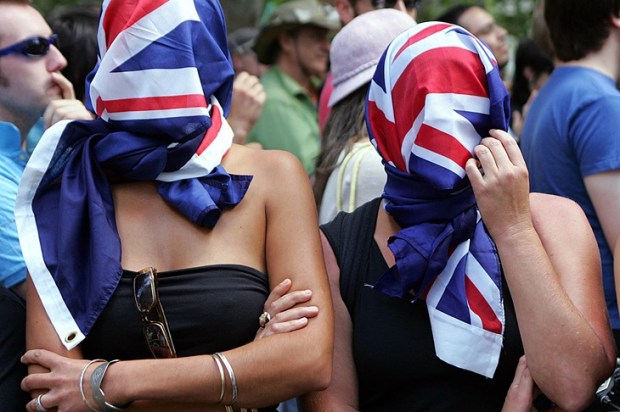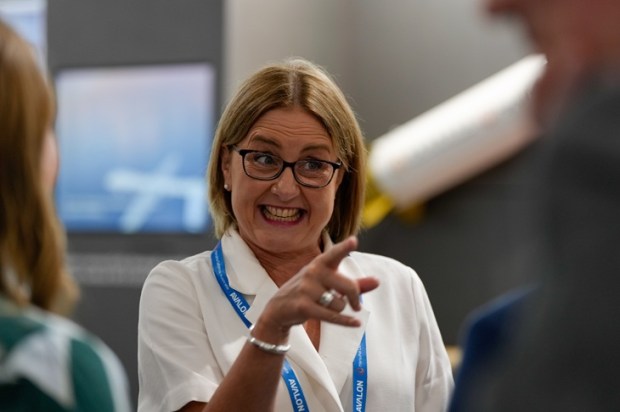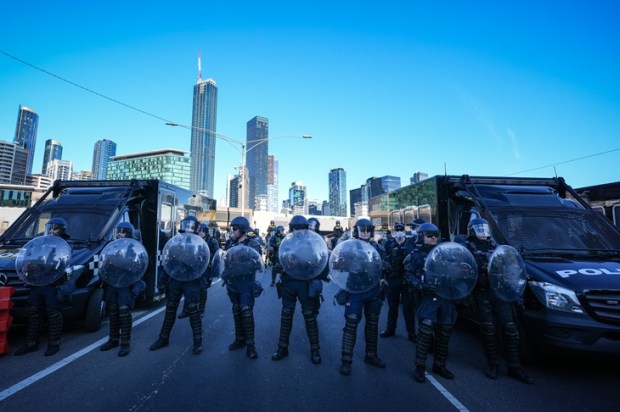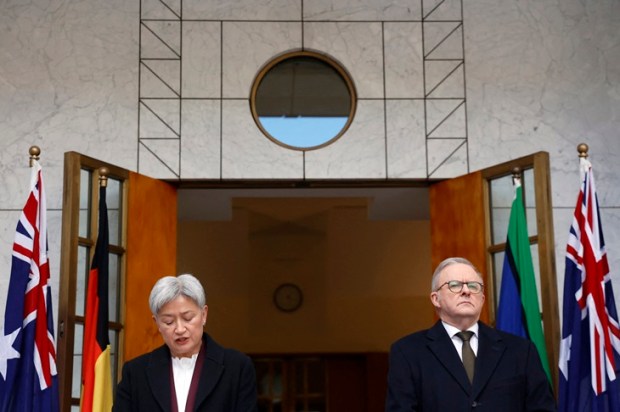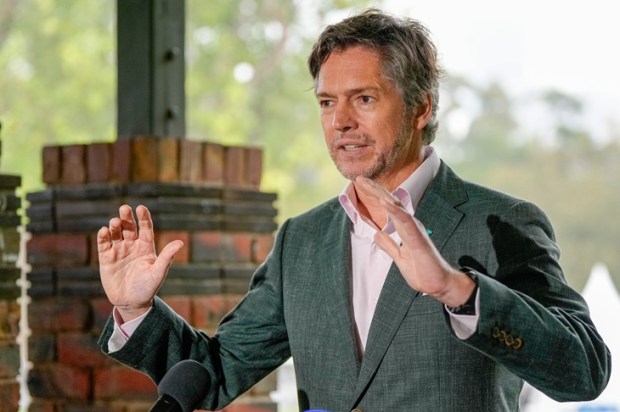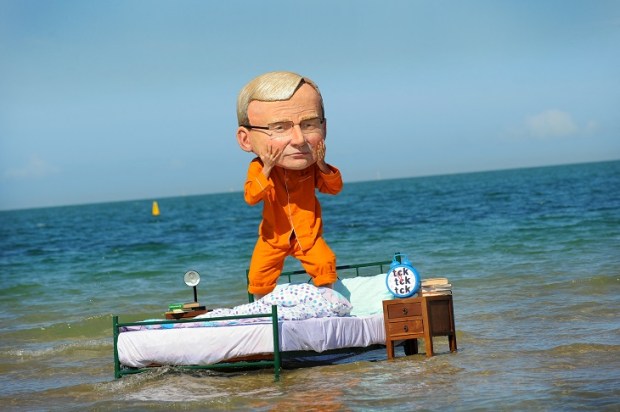In 2015, Chancellor Angela Merkel spread out her arms and welcomed the third-world to come and share in the riches and success of Germany. Eight years later, Germany has announced a shock recession following an economic crash that has bruised the ego of the political class. Experts have issued a warning that things are about to get worse for the country that once considered itself the jewel in the European Union.
Tied to this fate, the Euro Zone has also entered a recession, reporting a gross domestic product of -0.1 per cent according to the Eurostat. It was dragged from its original 0.1 per cent growth by Germany’s sluggish economy. As the largest economy of the bloc, their performance is critical and in this case – a real worry for the continent at large.
Germany’s recession is not solely the fault of Russian oil or the conflict in Ukraine. Germany is in trouble for the same reason other Western nations across the world are staring down economic oblivion – Covid hysteria and the promise of a green Utopia – with the latter being the real faiure pulling Germany under.
Politicians are trying to talk their way around the truth, but this is a ‘green’ recession of their own making driven by energy shortages and rising costs tied directly to Net Zero policies. Had Germany built nuclear plants instead of wind farms, we would not be having this conversation. There is no getting around the loss of energy-producing capital being poured into Beijing’s pockets while the incursion of renewables into the grid is a near-irreversible problem in the current political climate.
Germany’s self-inflicted wounds, coupled with appallingly stupid decisions on the manufacturing front, have left the country unable to fix itself without admitting some nasty and damaging truths about green economics which it championed and on-sold to the rest of Europe. Its politicians are not prepared to do this, and neither are Australia’s.
Political writer and academic researcher Ralph Schoellhammer explained the relationship between the recession and the decline of Germany’s manufacturing sector.
Schoellhammer said to Redacted:
‘This is an energy-induced recession, something we talked about a year ago. Everyone who believes in reality must have seen it coming. You cannot be an industrial-producing nation if you don’t have energy.’
In September of 2022, it became clear that Germany could not simply unhook itself from its reliance on Russian gas and transfer that demand to these miraculous, planet-saving renewables. The process of attempting to do so resulted in major factory shutdowns.
At the time, German Minister Robert Hebeck commented that the situation was ‘alarming’. One representative for German businesses said that their energy price was over €700 per MWh – or fifteen times higher than normal. Before the energy disaster, German manufacturing accounted for roughly a fifth of the nation’s economic output. Some companies have urgently attempted to outsource their energy bills by migrating operations and staff to other nations – but it is a case of being followed by the tide with no idea where the true shoreline sits in the new green reality.
Cheap Russian gas made Germany a manufacturing superpower. Expensive renewables have fallen well short of their performance. Panicked, the German government proposed a €3 billion aid initiative for energy-heavy businesses, but this might as well be a band-aid on the Titanic.
BASF, Germany’s 157-year-old chemical giant, which consumes the same amount of gas as Switzerland, has permanently scaled back to cope with terrifying energy bills. In February it announced the loss of 2,600 jobs. A BASF executive said, ‘Europe’s competitiveness is increasingly suffering from over-regulation, slow and bureaucratic permitting processes, and in particular, high costs for most production input factors.’
This matters for everyone. Caught up in this manufacturing massacre are chemical companies that produce ammonia, which is required for synthetic fertiliser without which nations risk ending up like Sri Lanka where food crops collapsed overnight. According to CNN Business, Europe’s ammonia production is down to 35 per cent of capacity. It’s no wonder EU bureaucrats want to kill off farming in the Netherlands, it will help them avoid difficult questions about energy prices destroying the availability of fertiliser.
‘We thought the dependence on Russian gas was a problem, well you wait for the dependence on Chinese voltaic panels and Chinese wind turbines…’ added Schoellhammer. ‘This is a case of economic suicide.’
As a net exporter to Europe, a failing Germany is set to cause problems for its neighbours, who are already shopping around for a backup plan in the event that German products vanish.
As Schoellhammer said:
‘There is one group of people who definitely want this [economic collapse] to happen. They see this as a kind of virtue – an atonement – for the sins of the past. After the West has been the exploiter, now it is time for us to throw our economy like the metaphoric virgin into the volcano.
‘Then there is the bigger group, the political class that doesn’t know. They have no clue how industry works. They have no clue how commodity markets work. We saw this with the sanctions against Russia. If you look at how the sanctions were imposed on the Russian energy sector this is how a second-year intern at McKinsey would do it.’
It is time for citizens around the world, Australia included, to properly understand that we are governed by these two classes of people – the malicious and the ignorant. One group thinks that our economic suffering will absolve their imagined white guilt, while the other has no idea how the consequences of their actions will play out.
To this, we can add a third group, the predator class, who intend to make a profit from the carcass of the West. These are the businesses and nations that are actively working to assist the collapse of Western economics and open the valves so that cash flows out of our pockets and straight into their coffers, never to be seen again.
This is a serious problem. Every time an election is held and the public reward politicians for their virtuous green politics, foreign-owned renewable energy, or communist-style ESG rankings, they are assisting in the destruction of prosperity based on the lie that their suffering saves the planet. The more powerful these collectivist nations get, the more they pollute and they do so without the regulations of Western industry.
Schoellhammer couldn’t make this clearer than with his electric vehicle example where the rise of EVs – at the express demand of German politicians and EU regulation – has devastated Germany’s manufacturing industry.
‘It would be sad if it wasn’t so hilarious…’ Schoellhammer shakes his head. ‘One of the major export products from China to Europe is electric cars, while one of the major exports from Europe to China is traditional internal combustion engine cars. What is the European Union banning? Internal combustion engines. So you create the situation where you destroy your export product while at the same time increasing product from a global competitor.’
Very few politicians embedded in the Net Zero ‘vibe’ have anything to say about the state of pollution in China coming out of the cities where green technology is manufactured. Nor are they interested in the colonisation and militarisation of the third world by nations such as China which is stripping them (and in some cases debt-trapping) out of their finite resources. We can include Australia in this, where we have sold off our nation’s future resources to Chinese mining companies at bargain prices.
As Schoellhammer points out, most people in Africa have access to the same level of electricity as people in France did in the late 1800s. This fresh colonisation of Africa by China is just as ruthless as every other expedition by a powerful empire in search of resources. The difference this time is that China has the technology and manpower to clean Africa out entirely. China owns roughly 7 per cent of Africa, mostly in mining-rich areas while 12 per cent of the continent’s debt burden is owed to Beijing.
Attempting to address these issues with the governing class in Germany – or Australia – is impossible. To question Net Zero or to point at the environmental harm being done by neighbouring non-Western nations is met with screeching and slurs from uneducated and – dare we say – frightened politicians who know their reputations cannot withstand a sensible conversation, let alone a debate.
‘You cannot have a debate about anything. At some point it is going to come back to “white supremacy”, “colonialism” or any of these buzzwords that are used by these pseudo-intellectuals,’ said Schoellhammer. ‘And that’s what they are. The D-growth movement is a quasi-religious pseudo-intellectual movement. They have no footing in reality.’
Germany and Australia are two nations balanced at the edge of failure. Germany imagines itself to be too big to fail, while Australia is the perpetually ‘lucky country’ naive enough to believe it cannot fail…
Flat White is written and edited by Alexandra Marshall


